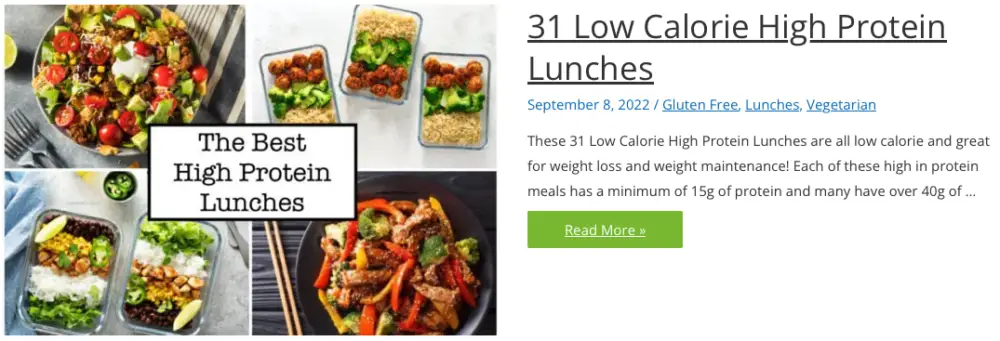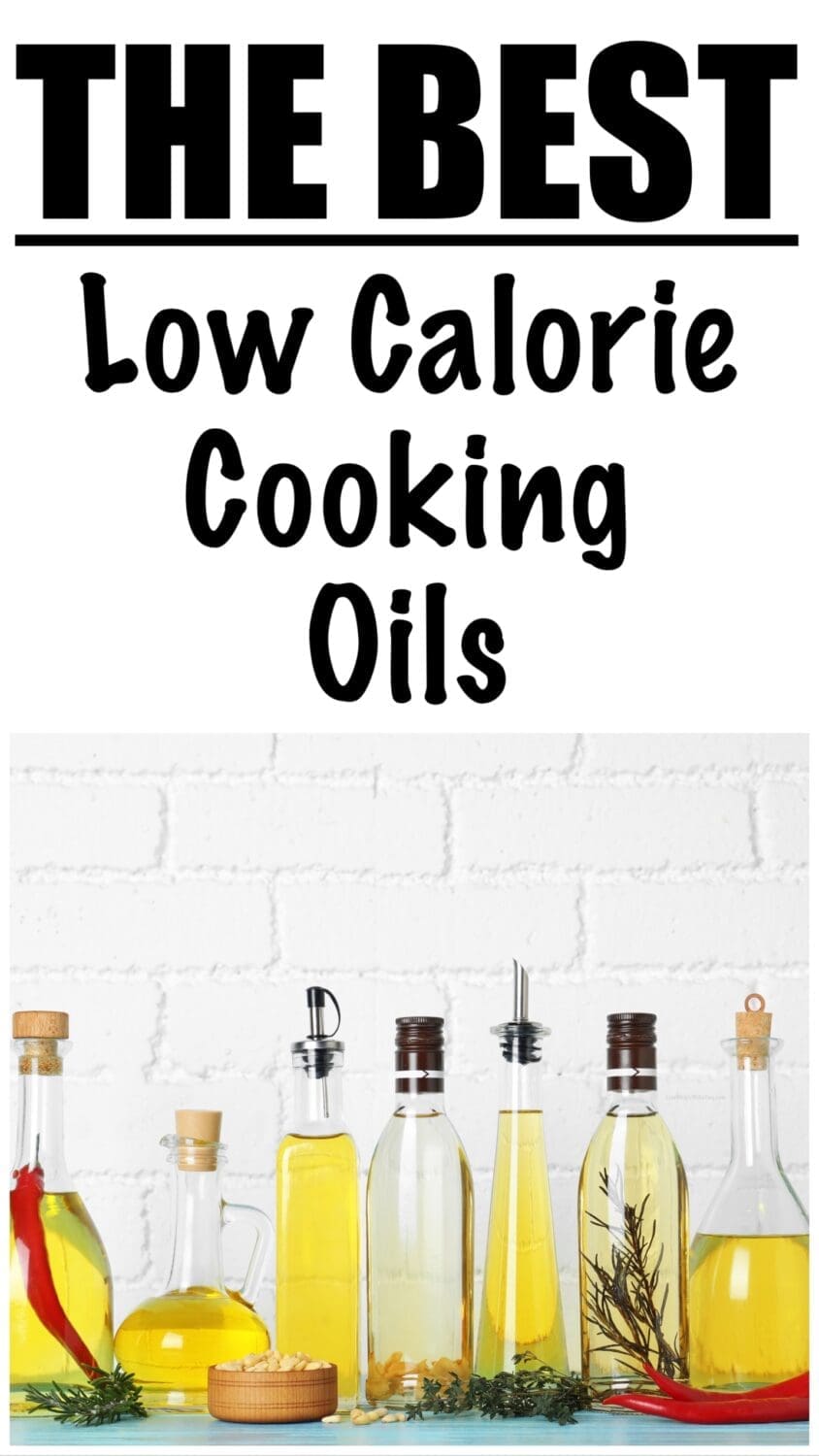Find the best Low Calorie Cooking Oils and some zero and low calorie oil substitutions in this extensive guide.
When it comes to cooking, using the right oils can make all the difference in taste and health. Low-calorie cooking oils and substitutes have gained popularity due to their ability to reduce unnecessary fat intake without compromising on flavor.


In this comprehensive guide, I’ll share various low-calorie cooking oils and their substitutes, covering everything from their nutritional benefits to their culinary applications.
Whether you’re a health-conscious individual or someone looking to elevate their cooking game, this article will equip you with the knowledge you need to make informed and delicious choices.
Low Calorie Cooking Oils and Their Importance
Cooking oils are an essential component of almost every culinary creation. However, traditional oils can be high in calories and unhealthy fats, leading to various health issues. Low calorie cooking oils offer a healthier alternative, promoting weight management and overall well-being. Let’s delve into some of the best low-calorie cooking oils and their unique properties:
1. Olive Oil
Olive oil is a staple in the Mediterranean diet and has been cherished for centuries for its incredible health benefits.
Extra virgin olive oil, in particular, is a fantastic choice for low-calorie cooking. Its rich, fruity flavor and low smoke point make it ideal for drizzling over salads, dipping bread, and light sautéing.
Studies have shown that olive oil may reduce the risk of heart disease and inflammation, making it an excellent choice for those seeking a heart-healthy option.
Olive Oil Nutrition:
- Serving Size: 1 tablespoon (15ml)
- Calories: 120
- Total Fat: 14g
- Saturated Fat: 2g
- Monounsaturated Fat: 10g
- Polyunsaturated Fat: 2g
- Vitamin E: 2mg
- Smoke Point: 320°F (160°C)
2. Coconut Oil
Coconut oil has gained immense popularity in recent years due to its unique flavor and potential health benefits.
While it is higher in calories than some other options, it is a fantastic substitute for butter and can add a delightful tropical twist to both sweet and savory dishes.
Coconut oil contains medium-chain triglycerides (MCTs) that are believed to boost metabolism and promote weight loss, making it an attractive choice for those looking to shed some pounds.
Coconut Oil Nutrition:
- Serving Size: 1 tablespoon (15ml)
- Calories: 121
- Total Fat: 14g
- Saturated Fat: 12g
- Monounsaturated Fat: 0.8g
- Polyunsaturated Fat: 0.2g
- Vitamin E: 0.1mg
- Smoke Point: 350°F (177°C)
3. Avocado Oil
Avocado oil is rich in monounsaturated fats, which are heart-healthy and help to regulate cholesterol levels.
With its mild flavor and high smoke point, avocado oil is excellent for searing, grilling, and roasting.
Additionally, it contains essential nutrients like vitamin E and antioxidants, making it a nourishing choice for culinary creations.
Avocado Oil Nutrition:
- Serving Size: 1 tablespoon (15ml)
- Calories: 124
- Total Fat: 14g
- Saturated Fat: 2g
- Monounsaturated Fat: 10g
- Polyunsaturated Fat: 2g
- Vitamin E: 2mg
- Smoke Point: 520°F (270°C)
4. Grapeseed Oil
Grapeseed oil is extracted from grape seeds and is known for its neutral taste and high smoke point.
Its versatility makes it an excellent option for frying, baking, and even making salad dressings.
Rich in polyunsaturated fats and vitamin E, grapeseed oil promotes heart health and helps reduce inflammation.
Grapeseed Oil Nutrition:
- Serving Size: 1 tablespoon (15ml)
- Calories: 120
- Total Fat: 14g
- Saturated Fat: 2g
- Monounsaturated Fat: 9g
- Polyunsaturated Fat: 3g
- Vitamin E: 3mg
- Smoke Point: 420°F (216°C)
5. Canola Oil
Canola oil is derived from the seeds of the canola plant and has a mild, neutral flavor.
It is a great substitute for vegetable oil and butter in various recipes.
Canola oil is low in saturated fat and contains a good balance of omega-3 and omega-6 fatty acids, making it heart-healthy and suitable for everyday cooking.
Canola Oil Nutrition:
- Serving Size: 1 tablespoon (15ml)
- Calories: 124
- Total Fat: 14g
- Saturated Fat: 1g
- Monounsaturated Fat: 9g
- Polyunsaturated Fat: 4g
- Vitamin E: 2.4mg
- Smoke Point: 400°F (204°C)
Low Calorie Alternatives to Oil In Cooking and Baking
While cooking oils are a crucial part of the culinary world, there are times when you might want to explore alternative options to reduce calorie intake without sacrificing flavor.
Thankfully, there are several low calorie alternatives to oil that can be used in both cooking and baking. Let’s take a look at some of these healthy substitutes:
1. Vegetable Broth
Vegetable broth is an excellent replacement for oil when sautéing vegetables and other ingredients.
It imparts a rich, savory flavor to your dishes without the added calories.
To use vegetable broth as a substitute, simply heat a small amount in a pan and sauté your vegetables until they become tender and flavorful. I also like to use it in place of oil in salad dressings and marinades!
2. Water
Believe it or not, water can be a surprisingly effective alternative to oil in certain cooking methods.
For example, when stir-frying vegetables, you can add a splash of water instead of oil to keep them from sticking to the pan.
This method reduces the calorie content of your dish while retaining its natural taste and nutrients.
3. Citrus Juices
Citrus juices, such as lemon, lime, and orange juice, can add a burst of tangy flavor to your dishes without the need for oil.
They work particularly well in marinades, salad dressings, and sauces.
The natural acidity of citrus juices helps to tenderize meat and brighten up the flavors of your recipes. As a bonus, you can also lower the sodium in your dish and replace both the oil and the salt with lime or lemon juice.
4. Greek Yogurt
Greek yogurt not only works as a substitute for oil in baking, but it can also be used in savory dishes as a creamy and low-calorie alternative.
It adds a delightful tang and texture to your recipes while boosting protein content.
Use Greek yogurt in marinades, dressings, and dips for a healthier twist.
5. Silken Tofu
Silken tofu is an excellent replacement for oil in creamy sauces and dressings.
It provides a smooth and velvety texture without the high fat content.
Blend silken tofu with herbs and spices to create flavorful dips or use it as a base for creamy pasta sauces.
6. Unsweetened Applesauce
We mentioned applesauce earlier as a substitute for oil in baking, but it’s worth reiterating its versatility.
Applesauce can be used in cooking as well to add natural sweetness and moisture to dishes. It works especially well in sweet and savory baked goods.
By incorporating these low calorie alternatives into your cooking and baking repertoire, you can create delicious and healthier meals without compromising on taste. Experiment with these substitutes to find the perfect balance that suits your culinary preferences and dietary goals.
Frequently Asked Questions (FAQ)
Some of the best low-calorie cooking oils for sautéing are olive oil, avocado oil, and grapeseed oil. These oils have high smoke points and impart delicious flavors to your sautéed dishes.
Yes, coconut oil can be used as a substitute for butter or vegetable oil in baking recipes. It adds a delightful coconut flavor and moisture to your baked goods.
You can use applesauce as a replacement for oil or butter in baking recipes. It works well in cakes, muffins, and brownies, providing natural sweetness and moisture.
What to Read Next:






Lose Weight By Eating Cookbooks


Share this Low Calorie Guide:


